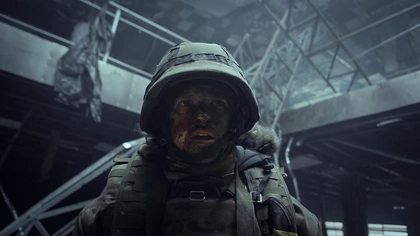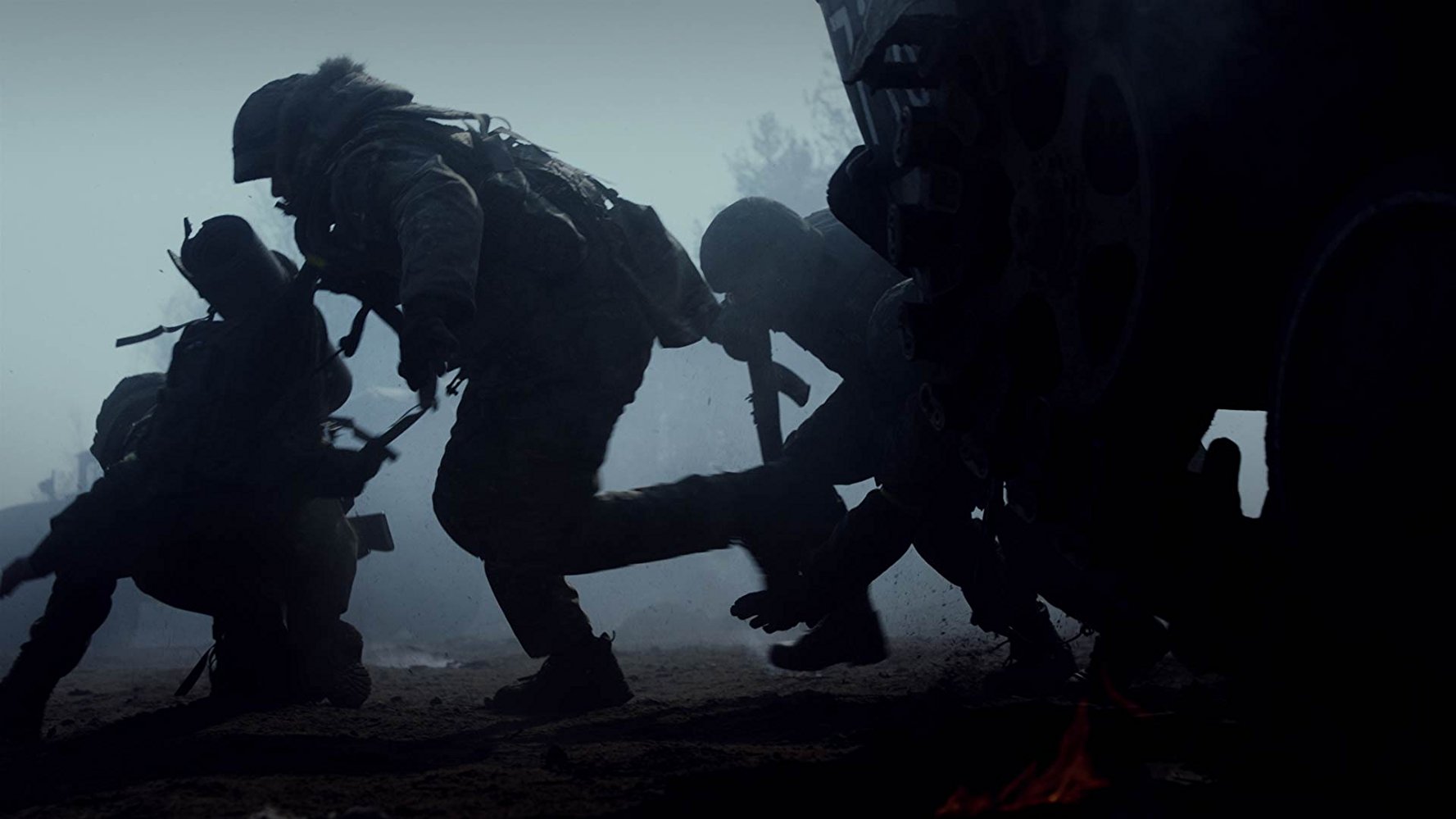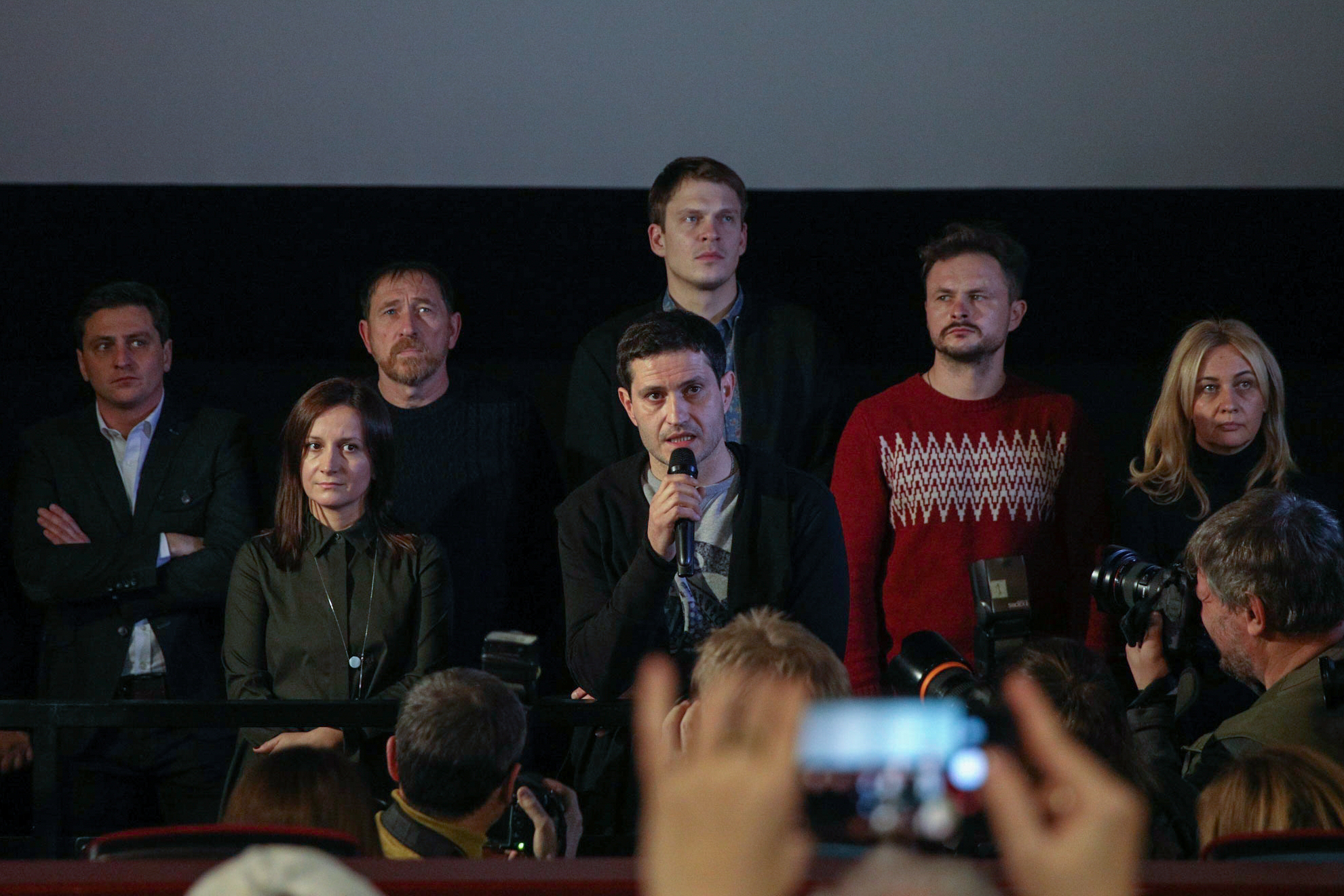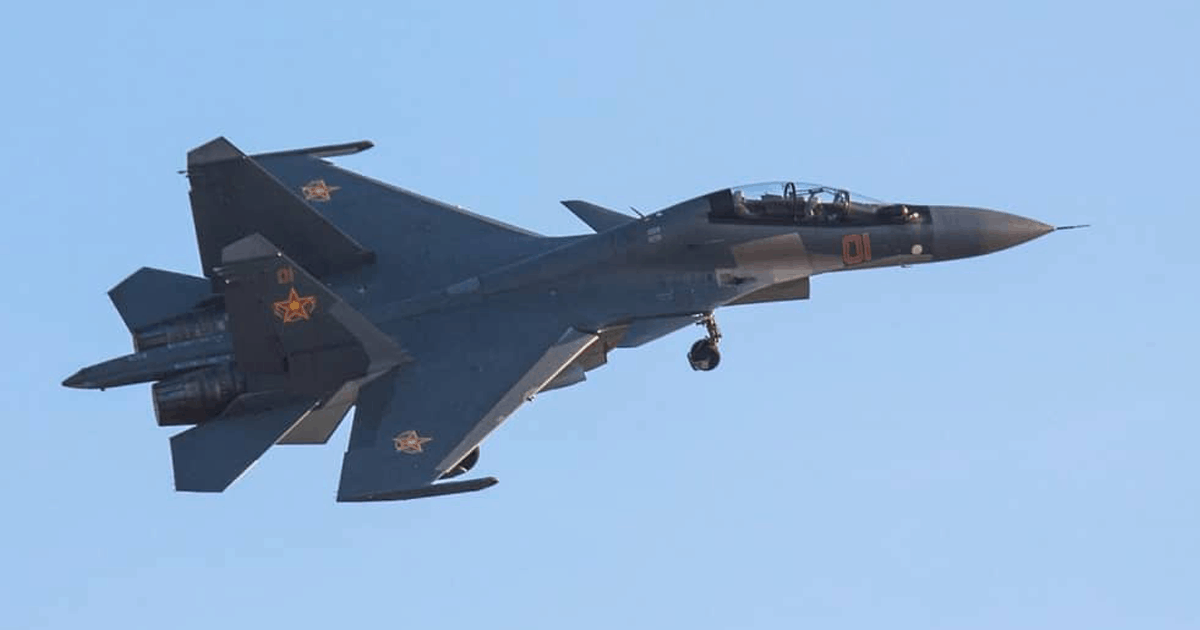“The Cyborgs: Heroes Never Die”, a war movie by Ukrainian director Akhtem Seitablaev, is to be released in cinemas across the country on Ukraine’s Armed Forces Day on Dec. 6.
The film tells a story that unfolds in autumn 2014 amid the bloody battle for Donetsk Airport, which is defended by the Ukrainian army and paramilitary forces as their last stronghold near the city.
The story opens with a Ukrainian military convoy with volunteer soldiers setting out from their base in the village of Pisky to reinforce combat units at the airport. However, while on its way, the column of vans and armored vehicles comes under extremely heavy shelling by Russian-led forces in the area. Only a small group of fighters – the movie’s main characters – makes it to Ukrainian stronghold.
One of them is a young volunteer soldier with the codename “Rich Kid” (played by 20-year-old Makar Tykhomyrov), a talented internationally recognized musician who went off to war without telling his well-to-do family. He has no military record except for three weeks of boot camp training – so there at the Donetsk Airport, his idealistic views and his youthful exuberance clash with the reality of a bloody and merciless war.
The movie is based on true events.
The battle of Donetsk Airport, one of the most bloody and tragic episodes of Russia’s war in Donbas, was fought between late May 2014 and January 2015. After 242 days of solid defending against more numerous Russian-led forces, the last surviving Ukrainian combat units eventually left their emplacements in the air terminals, which were completely ruined after months of fierce fighting.
However, long before its sad demise, the airport had gained an iconic status for many Ukrainians, and became a symbol of die-hard resistance of the nation at war. The airport’s defenders are widely known as “Cyborgs” – a nickname that went viral on the internet after a Russian-led fighter said in an interview that Ukrainians had not been giving up their grim defense of the airport because they were not humans, but cyborgs.
Considering its significance, it was only a matter of time before the story of the battle came to the silver screen. According to the filmmakers, the movie’s budget was up to Hr 48 million ($1.8 million), half of which was donated by the Ukraine’s State Film Agency. Filming was done between February and April 2017, at full-sized mock ups of the ruins of the Donetsk airport set up outside Kyiv. Tank battle scenes were filmed at the army’s Honcharivskiy firing range in Chernihiv Oblast; and the airstrip of Chernihiv Airport was used to depict the scorched battlefield around the smashed Donetsk terminals.
“The Cyborgs” is a traditional war drama, with lots of realistic scenes of gory close combat, and with an emphasis on realism and authenticity. A whole team of military consultants, including distinguished officers who participated in the battle of Donetsk Airport, were invited to advise on the filming.
“Sometimes, details of everyday routine tell much more about the war and condition of fighters than any exciting military action,” the film director Akhtem Seitablaev told the Kyiv Post during a press conference on Dec. 4.
According to airport defender Kyryl Nedrya, war veterans contributed many details from their own experience, such as phrases actually used by soldiers during the battle, as well as many specific combat tactics and slang words used by the soldiers.
Even though it was produced for general release, the movie does not try to present a softened and simplified picture of war at the expense of the realism. The characters use foul language, as soldiers at war do, and the movie’s hand-to-hand fighting scenes are brutal and fierce.
The movie also has its fair share of trench humor, and many scenes of soldiers cracking jokes in dangerous situations, as often happens in real action, when comrades-in-arms instinctively cheer each other up with seemingly irrelevant humor.
In general, “The Cyborgs” gives a quite realistic and recognizable image of war in Ukraine’s east, and much of it reflects the situation all along the Donbas front line.
The script, written by Ukrainian playwright Nataliya Vorozhbyt, has no strict storyline, but rather paints a general picture of the battle of Donetsk Airport, and settles the characters into it.
The protagonists – the soldiers and officers in a combat squad – are very different from each other, and personify various layers of Ukrainian society stunned by the shock of war of 2014. A young “Rich Kid” who eagerly spoils for a fight and does not want to obey orders he does not understand; an elderly volunteering soldier “Old Man” who still has a lot of strength to fight, a tough commander “August” with strong nationalistic views, and two Russian-speaking soldiers: “Saturday,” who cracks jokes, and “Guide,” a skillful fighter who is tortured by Russian-led forces while in captivity.
Through conversations, conflicts between the leading characters, many of important questions still facing Ukrainian society are asked. Did the Russian invasion happen because the older generation of Ukrainians failed to ensure the true independence of Ukraine, and build up a strong army to prevent any foreign intrusion? Are young people now paying for the mistakes of their fathers? What ideology will save Ukraine – hard-line nationalism or more moderate and liberal views? Why do both sides at war think that God is on their side?
All these controversies clash with each other as the movie’s leading characters quarrel and debate amid the routine of war.
In one episode, a high-ranking Ukrainian general comes to the airport after another night of heavy fighting and commands the Ukrainian fighters to observe the Minsk ceasefire. He is met with disdain from the soldiers: “Why can’t we defend ourselves if we are attacked? What will we do, are we here to die?”
Even when it comes to showing the characters of the Russian-led forces, the movie avoids oversimplifying and demonizing the enemy. In one climactic scene there is a conversation between radical Ukrainian nationalist “August” and a captured prisoner of war, a fighter originally from Donetsk.
Despite their mutual disdain and hatred, the scene shows them steadily calming down in the process of discussing their conflicting worldviews and values, smoking cigarettes together, and starting finding a common language.
“See how it happens,” the Ukrainian commander says. “None of the things all around us would have happened if we had simply talked to each other.”
You can also highlight the text and press Ctrl + Enter







Comments (0)